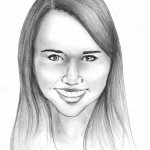The Yale College Council emailed the entire campus on Saturday to announce a raffle for five tickets to Supreme Court Justice Stephen Breyer’s upcoming talk at the law school. But I, along with many other students, had already received notice of the event. A number of tickets were allocated for Ethics, Politics and Economics majors and Global Affairs majors. Both groups of students received emails inviting them to the event before the YCC email was sent.
 Breyer’s talk is not the first event for which certain academic programs have been given preference in ticket distribution, and the implications of this kind of favoritism need to be examined.
Breyer’s talk is not the first event for which certain academic programs have been given preference in ticket distribution, and the implications of this kind of favoritism need to be examined.
Students in Directed Studies and Grand Strategy also frequently receive invitations to events when the rest of the student body does not. Those academic programs, like EP&E and Global Affairs, require applications for admission. Having an application process for those programs and majors already creates a strange sense of hierarchy among departments. Providing these students with special invitations to events just serves to perpetuate this false notion of prestige.
Of course, high-profile talks have limited available seating. But when the YCC is already raffling off five tickets to the general student body, all available undergraduate tickets could just as easily be distributed via raffle.
Allocating tickets for certain majors could make sense if the speech was to focus on a specialized topic, such as an event with a biology or music expert. But a speaker as well known as Breyer (or Henry Kissinger last year) is sure to appeal to a very large number of students. And even if the organizers of the Breyer event thought that the talk would be of more interest to those in the social sciences, many students in majors similar to EP&E and Global Affairs were not given preference in ticket distribution.
EP&E and Global Affairs students had to claim spots at the event by Monday morning. At that point, the Political Science department emailed its students offering them a limited number of tickets. A follow-up email six minutes later explained that all available tickets had been claimed. Later in the afternoon, Political Science students were again offered several tickets, which were all claimed within 15 minutes. Given that departments vary drastically in size, allocating tickets by major doesn’t seem to be the fairest method of distribution.
I doubt students choose to major in EP&E or Global Affairs in order to get tickets for high demand events. Still, when the University offers perks like speaker tickets it perpetuates the idea that these selective programs are more desirable. That messaging is not only wrong, but also entirely inconsistent with the liberal arts mission of the College. Yale provides excellent undergraduate educations in a wide range of subjects and nobody should be led to believe that any field is inherently preferable to another.
Next time an event of this nature comes to campus, I would encourage the organizers to consider opening up tickets to the entire student body, perhaps by raffle. This will create equal opportunities for students of all disciplines to hear the speakers, and will also improve access for younger students who cannot yet have been admitted to EP&E or Global Affairs. This course of action will also allow for an academically diverse audience at the event, allowing for more interesting conversation on the topic.
Yale should convey to its students that every field of study adds value to the College; setting aside privileges for specific segments of the population by major does not help accomplish that goal.
Diana Rosen is a junior in Pierson College. Her columns run on Tuesdays. Contact her at diana.rosen@yale.edu.







